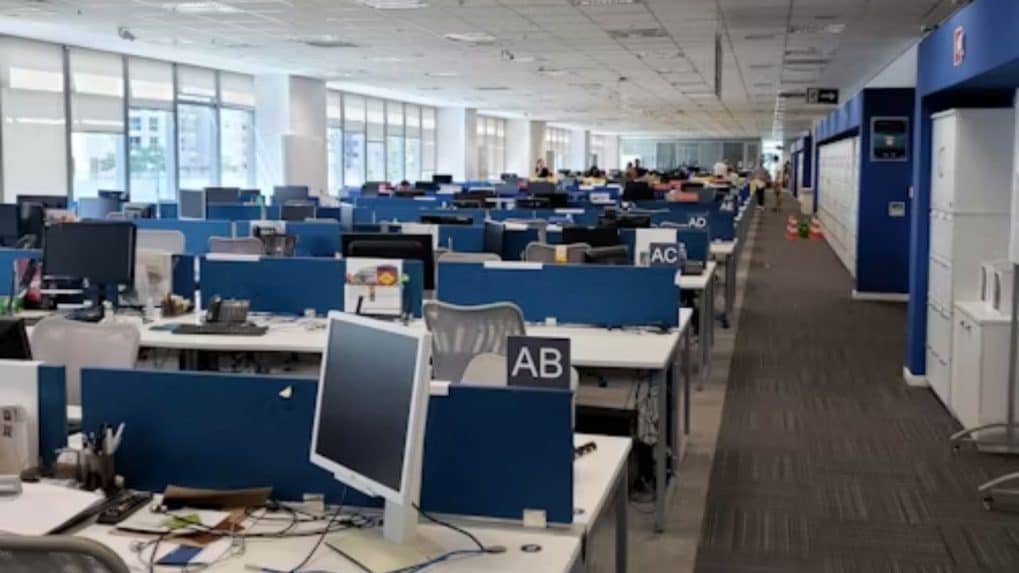Karnataka govt's 12-hour workday proposal legalizes exploitation, experts warn
Experts emphasized that Gen Z has become a dominant force in the corporate landscape, and they predict that the proposed 12-hour workday amendments will trigger a mass exodus of employees from Karnataka
ADVERTISEMENT
The Karnataka government's latest proposal on 10-hour workdays has exploded like a bombshell, potentially disrupting the work-life balance of employees across sectors, experts warn. This week, the Karnataka government proposed reforms to labour laws, suggesting a maximum workday of 10-12 hours.
Experts said that extended work hours will only increase the proportion of non-productive hours per day. Non-productive hours refer to the period when employees' cognitive capacity and output diminish.
"Forcing people to work 10 to 12 hours a day, will lead to exhaustion, burnout, and mental health issues," Advocate Harpreet Singh Saluja, President at Nascent Information Technology Employees Senate (NITES), told Storyboard18.
"Productivity might appear to go up on paper, but in reality, overworked employees become less creative, less motivated, and more prone to errors".
Kamal Karanth, Co-founder, Xpheno - a specialist staffing firm echoed similar concerns about productivity slumps. "While the move will enable increased physical presence in the office, it may not effectively increase the output or productivity, as the ceiling for effective productive hours will not rise proportionately," Karanth said.
However, Sonal Arora, Country Manager, GI Group Holding believes that the move will benefit some sectors, such as Manufacturing or retail with shift efficiencies.
India's Economic Survey 2024-25 flagged that inflexible working hour limits and overtime restrictions for factory workers can hinder the ability to meet demand surges.
Unlike India, where the working hours limit in a factory is 10.5 hours, countries like China, Denmark, Switzerland, Norway, and Indonesia have no such limits.
The Survey recommended changes to labour laws, focusing on achieving better outcomes for economic growth and prosperity in the manufacturing sector.
'Exodus of employees'
Experts emphasized that Gen Z has become a dominant force in the corporate landscape, and they predict that the proposed 12-hour workday amendments will trigger a mass exodus of employees from Karnataka. Businesses will prioritize retaining next-generation employees and preventing voluntary resignations among the GenZ workforce.
According to a report by career platform, Unstop, Gen Z values work-life balance and job satisfaction over the allure of hefty paychecks.
Unlike the previous generations who prioritized financial stability, Gen Z professionals seek personal fulfillment, flexible hours, and fit mental health.
"The proposal sends a wrong message, that profits matter more than people," Saluja said.
'Countries with prolonged working hours'
Several countries promote prolonged working hours policies. According to the data from the International Labour Organization (ILO), Bhutan tops with list with the highest average working hours globally at 54.4 hours per week. The United Arab Emirates (UAE) ranks second with an average of 50.9 hours per week, followed by Lesotho (50.4 hours), Congo (48.6 hours), Qatar (48 hours), Liberia (47.7), Mauritania (47.6), respectively.
India ranks 13th among the world’s most overworked countries, with an average worker working 46.7 hours each week.
For decades, Japan and South Korea have had similar philosophies regarding long working hours. However, a recent report highlights a shift in Japan's corporate landscape, where the new generation is opting for shorter hours to reduce the deaths caused by overwork.
According to science, working extra hours won’t actually make a difference at work, but it will certainly wreak long-term damage on the body. Several researchers have found that the longer employees work, the higher their levels of stress, depression, and suicidal ideation.
In the case of Karnataka, Karanth pointed out that traffic congestion could be an additional concern in this debate. "In cities and geographies, the physical infrastructure conditions require adding an additional 2-4 hours for work-related commute per day. A 12-hour office time would hence translate to 15 - 16 hours of being away in work mode for employees and that will take away a lot from their personal time," he said.
The "long working day" proposal could damage Karnataka’s long-standing reputation as an employee-friendly tech hub, Saluja noted.
'Salary vs prolonged working hours'
Experts have raised another issue with Karnataka's proposed long workday--the salary component. The shift in work hours has raised expectations around compensation or benefits. Arora argued that "Attracting and retaining talent may require companies to revisit their value proposition beyond just pay, focusing on flexibility, wellbeing, and growth".
If salaries don’t increase in line with longer hours, it’s outright exploitation, another expert said.
According to Xpheno data, Karnataka's Bengaluru emerged as the only "talent-positive" megacity across the country in 2023 - 2024 period. Bengaluru absorbed 1,23,000 talents while Hyderabad absorbed 60,000 such individuals during that period.
However, Saluja argued that if the Karnataka government officially passes the controversial proposal, states like Telangana, Tamil Nadu, and Maharashtra may reap the benefit. He said, "Employees will naturally prefer locations where they are respected, not pushed to breaking point".
While the final outcome hangs in the balance, experts warn that Karnataka may soon lose its reputation as a progressive state by ignoring sustainable employment and corporate well-being.

